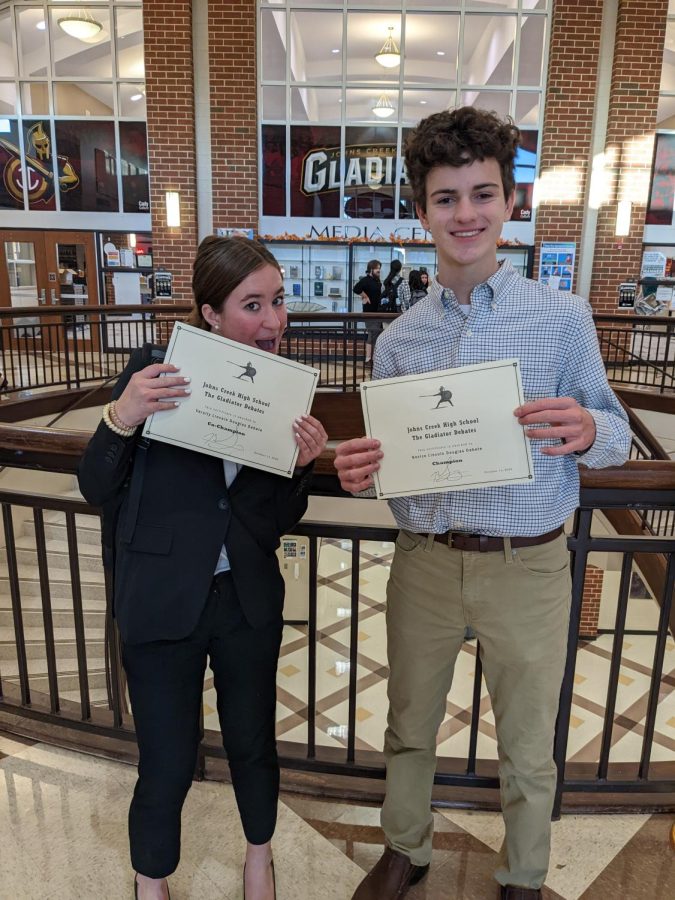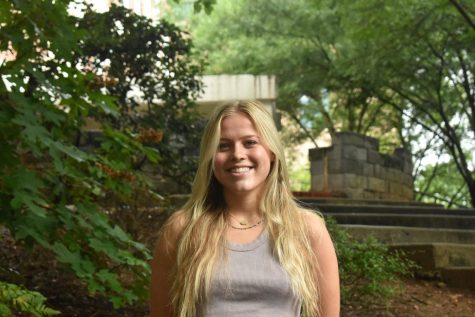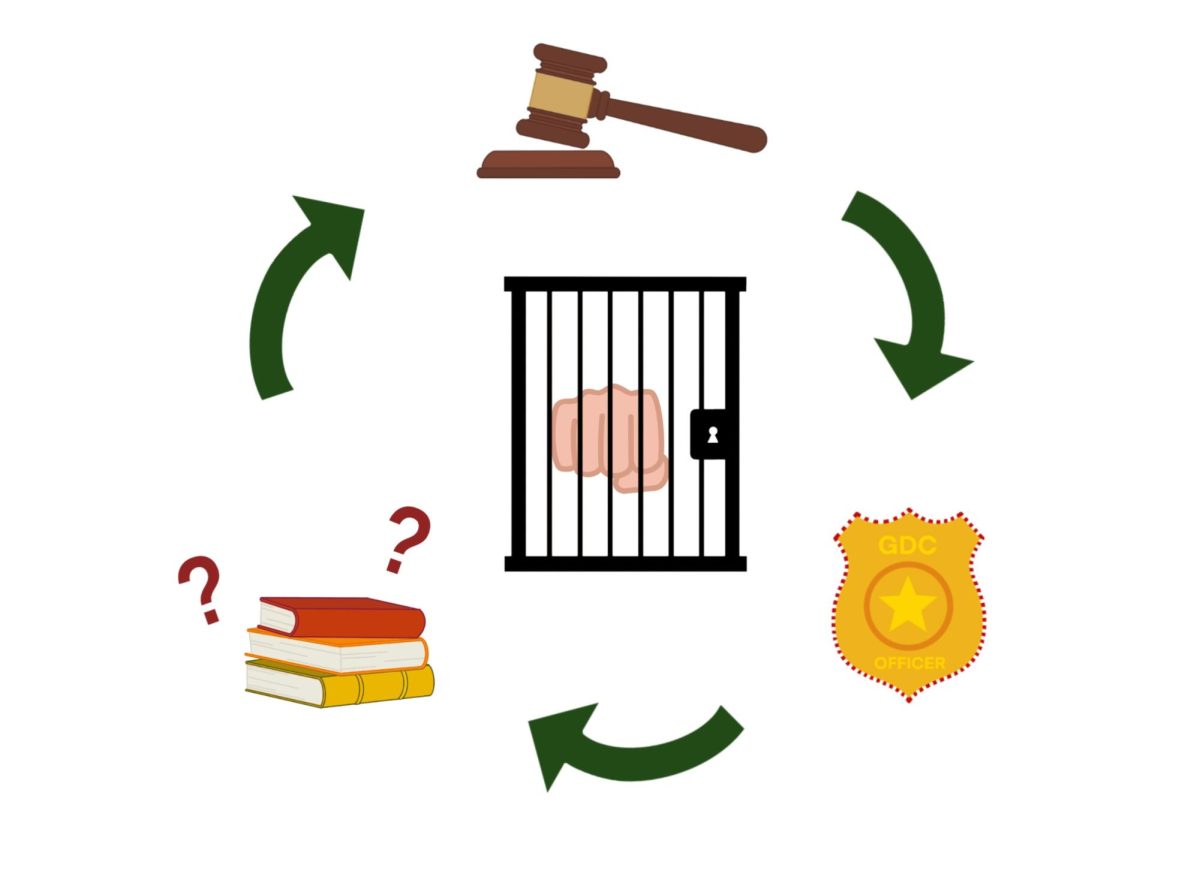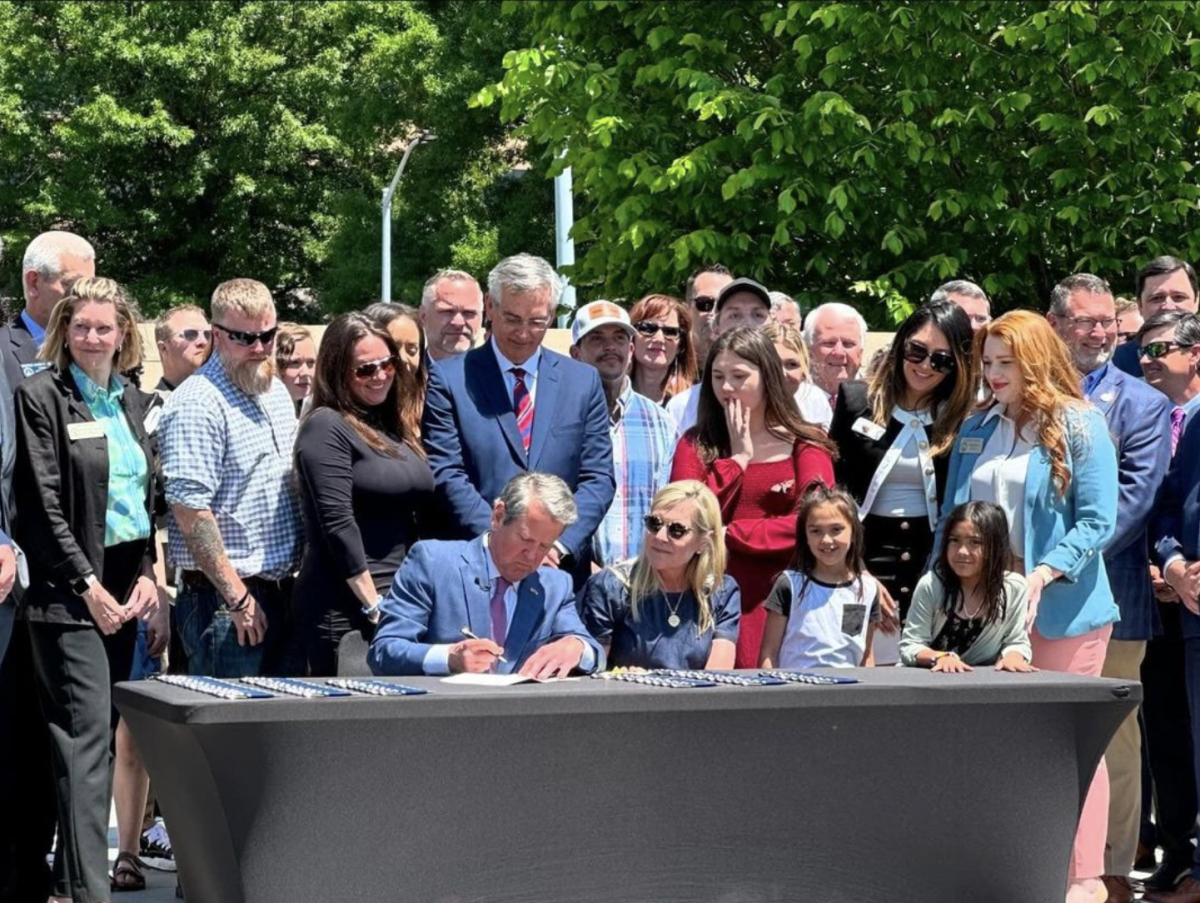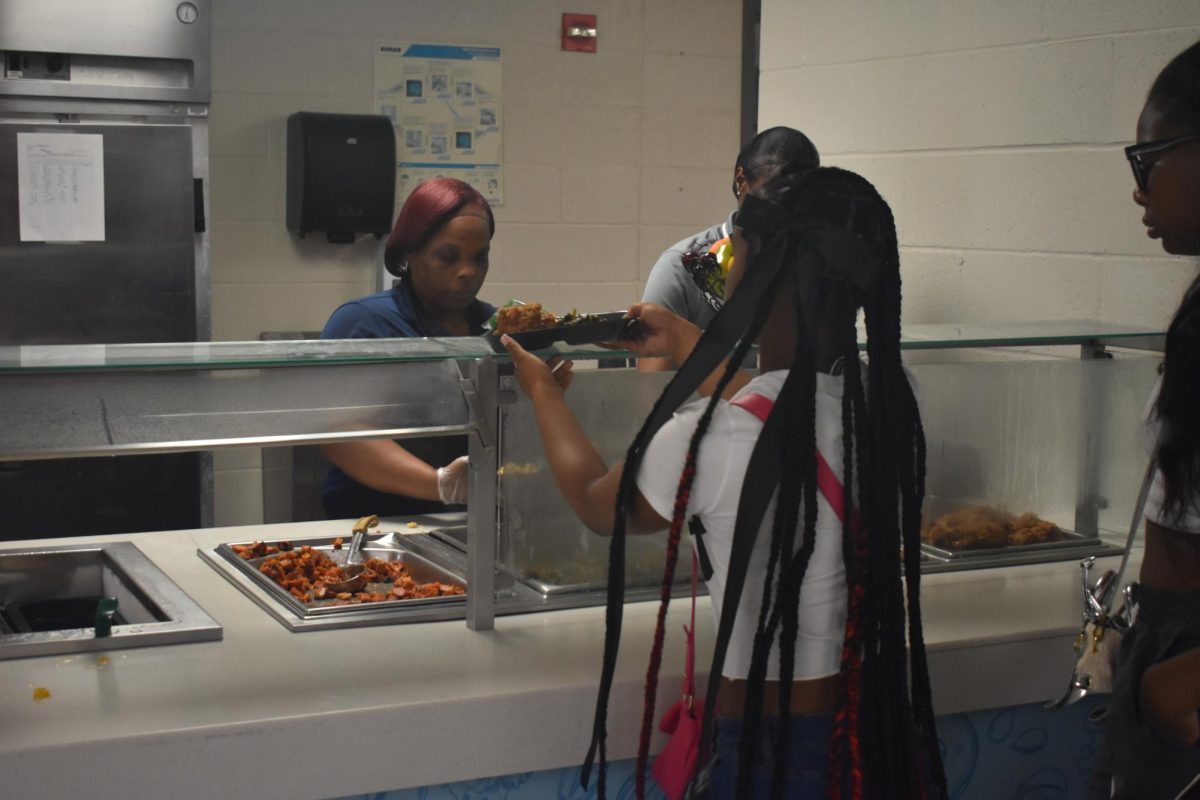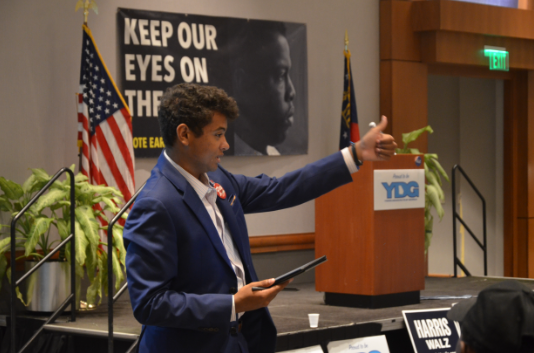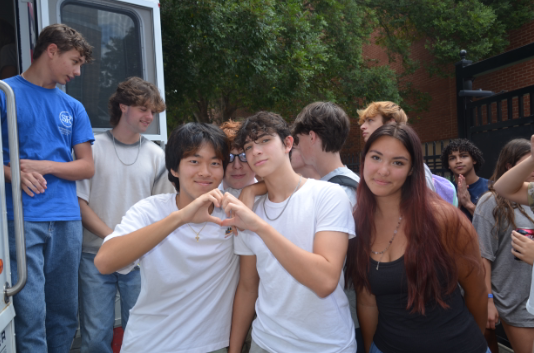Debate returns to in-person competitions
Debate competitors junior Fiona Bray and freshman Harrison James showcase their awards after participating in their first in-person competition.
November 9, 2022
After a two-year hiatus, the Midtown Jesters speech and debate team finally returned to in-person competition, prompting a new experience for team members.
The team had been competing virtually since the cancellation of in-person competitions due to COVID-19 in 2020. Virtual competitions marked a shift in the team’s dynamic.
“It’s a completely different experience,” senior Jack Huray said. “In in-person debate, you wake up at 5 o’clock in the morning, and you get home at 12 o’clock the next morning. For virtual debate, you only have to wake up an hour before the round, and you could leave as soon as the round was over. So, the time of competition decreased from fifteen hours to maybe six.”
Throughout the full 2020-2021 season, members could only compete from their homes, and as a result, some left the team.
“It’s fair [that students left], and it should have been that way,” debate coach Mario Herrera said. “I had a couple of seniors who hated debating virtually, and they were really good people. I could tell that it bothered them to come up and say that they didn’t want to do it anymore.”
When students returned to in-person school in 2021, Herrera accommodated the team by allowing students to be at the school together during competitions rather than at home.
“Last year, we got to come here and compete at school, and that was so much better,” Herrera said. “Instead of me herding cats by trying to make sure everyone was online at home, here, it felt much more like a team. We could be social; we had meals together. It felt a little bit more like a regular season.”
Junior Fiona Bray joined the team in 2021 and was forced to adapt to a different competition style.
“It was weird being in a room by yourself, just talking to your computer,” Bray said. “It felt very different. [My peers and coaches] definitely helped me learn a lot, but I think it would’ve been better to learn in-person.”
Huray said in-person debate adds an interactive element that virtual debate lacks.
“You definitely appreciate the community aspect and the people who compete a lot more because you get to see them in between rounds and really talk to them,” Huray said. “You can get to know people, and it’s not just competition.”
After competing in-person, Bray said there is a more personal connection with the judges.
“You can react off your judge more because they’re right in front of you instead of being on a screen,” Bray said. “So, it definitely makes it a lot easier.”
Huray, as an experienced team member, can participate in the judging of rounds and shares Bray’s perspective on the benefits of judging in-person.
“I’m judging in-person soon, and I can’t wait to see what it’s like,” Huray said. “You can feel the debater’s persona, and you can’t really do that online.”
While some competitions have returned to in-person rounds, many have remained virtual. Herrea said there are some upsides to maintaining virtual competitions.
“Online competitions are cheaper,” Herrera said. “It’s very easy to provide judges for [online] tournaments; we have a huge alumni population, so we were getting judges from alumni in Louisiana, Illinois, Boston and California.”
The hybrid schedule, which allows students to compete online or in-person, can make debate more accessible, Herrera said.
“I kind of like the hybrid,” Herrera said. “It can meet a lot of needs, and it can help a lot of programs that are struggling financially but still want to participate. I think both sets of skills are vitally important going into a new normal.”
As freshmen enter this new era of debate, they have the opportunity to explore both types of competitions.
“Our first competition was fun, and we did better than we thought we would,” freshman Reuben Mackler said. “I definitely plan to continue debate in the future if it’s like how our first in-person competition was.”

